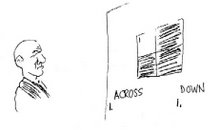 This is the last batch of Onyx pendants. There are no more - 1/2 black onyx and 1/2 white onyx crystal ovals. (Click on picture for larger view)
This is the last batch of Onyx pendants. There are no more - 1/2 black onyx and 1/2 white onyx crystal ovals. (Click on picture for larger view)Gone, gone, all gone, every oval gone, every pendant gone, awake!
Why is the black on the dextro and the white sinister?
Onyx, a type of chalcedony quartz, is mined in Brazil, India, California and Uruguay. It has a fine texture and a multitude of colors.
Onyx is Greek meaning a finger nail or claw. One day while Venus (a.k.a. Ishtar, Mari) was sleeping Eros/Cupid cut her fingernails and scattered them on the ground. Because no part of a deity can die, the gods turned them into stone - onyx.
All colors of chalcedony from white to black are called onyx. Today, we preface the word with black (e.g. black onyx). Thus, there is no difference between the left half and the right half of the pendant except for our perception of it.
The mystic symbolism of "it" follows:
In weakness, we seek light; in strength, we face darkness.
or something else...
On another note, Bumble Bee Doggie is not displaying dualism in his yellow and navy sweater. High styles for the haughty Westie-Poo!








